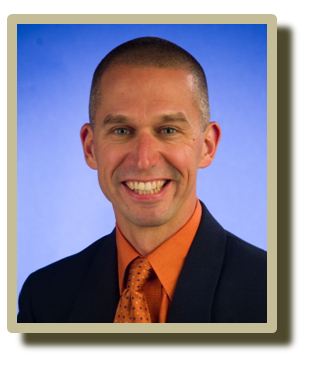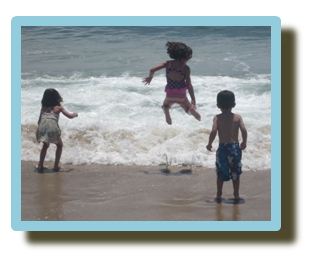Editors Note: This blog is part of a special series on dads which originally ran in 2012. Because it is timeless we are sharing it again.
Being the father of an athlete is a challenging yet rewarding role. At MomsTEAM we think sports dads deserve to be honored, not just on the third Sunday in June, but for an entire month. So we have designated June as National Sports Dads Month and invited some veteran sports dads to share their wisdom by responding to a series of questions (the same ones we asked sports moms in May).
As we head towards Father's Day on Sunday, we have already heard from a fascinating array of sports dad s, from a former Major League Baseball general manager, from a Minnesota hockey coach and safety advocate to a sociologist with an expertise in gender and sports.
s, from a former Major League Baseball general manager, from a Minnesota hockey coach and safety advocate to a sociologist with an expertise in gender and sports.
Today, we hear from Doug Casa, a professor of Kinesiology and head of the Korey Stringer Institute at the University of Connecticut and the nation's pre-eminent expert on the study of exertional heat stroke, heat illnesses, hydration, and preventing sudden death in sport.
MomsTEAM: Were you an athlete and what sports did you play as a youth (under 19)?
Casa: Absolutely. Almost everything. I played football for eight years, soccer for eight years, baseball for three years, bowling for four years, cross country for two years, track and field for six years, and also played a wide variety of other sports growing up, including street hockey, stickball, curb ball, tennis, hiking, trail running, pool sports, and ultimate frisbee. I excelled as a distance runner through high school and college.
MomsTEAM: What is the most rewarding aspect of being a sports dad?
Casa: I just love watching my kids be physically active. I am a big believer in the power of fitness, physical activity, and the social benefits of participating in sports and being physically active. We are trying to be sure they are involved with a wide variety of sports activities and will not allow them to focus on one sport until the teen years.
MomsTEAM: What lesson has your sports active child taught you?
Casa: Patience, I sometimes forget the whole journey I took in sports and it takes patience to allow your child to explore the whole journey on his/her own. I love to see the pure smiles from the joy my child feels during exercise and it takes me back to the great moments of my youth.
MomsTEAM: What is the most important lesson your child is learning from his/her sport?
Casa: Teamwork. They are learning that they can function as part of larger unit.
MomsTEAM: If you could "flip a switch" and change one thing about the culture of youth sports what would it be?
Casa: Without a doubt the biggest mistake that parents make is having their child focus on one sport at a very young age. My background in sports medicine and exercise physiology has allowed me to see the benefits from having young children develop a wide variety of skill sets in order to promote the best opportunity for long-term physical development. We have seen kids being funneled into a single sport by age six, seven, eight and that is crazy and unfortunate for the child. It often seems it is the parent chasing the dream for the child, when the child just yearns to be a child. The lack of knowledge regarding safety and health issues on the part of coaches is also a great concern.
MomsTEAM: Brag a little: what have you done to make sports better for kids? Please share.
Casa: As Chief Operating Officer for the Korey Stringer Institute at the University of Connecticut I lead a team that works to change policies for sports at all levels of sport. We have assisted with changing policies for youth tennis, high school football, college football, professional football, as well as a wide variety of other sports that aim to enhance safety. We have assisted six states in changing their high school football heat acclimatization policies as of May 2012. A long road ahead, but one state at a time.
Doug Casa is a Professor in the Department of Kinesiology and the Neag School of Education at the University of Connecticut and Chief Executive Officer of the Korey Stringer Institute. He is the author of over 125 peer-reviewed articles and has presented more than 300 times on subjects related to exertional heat stroke, heat-related illnesses, preventing sudden death in sport, and hydration, and is the editor of the recently published book, Preventing Sudden Death in Sport and Physical Activity, published by Jones & Bartlett in cooperation with the American College of Sports Medicine. 
A fellow of the National Athletic Trainers' Association and the American College of Sports Medicine, Dr. Casa has been a lead or co-author on numerous sports medicine (ACSM, NATA) position statements related to heat illness and hydration, is an associate editor of the Journal of Athletic Training, on the editorial board of Current Sports Medicine Reports, Journal of Sport Rehabilitation, and the Journal of Strength and Conditioning Research and a frequent contributor to numerous media outlets, including theToday Show, and Good Morning America, ESPN, CNN, PBS, and publications such as Sports Illustrated, USA Today, The Wall Street Journal and The New York Times.
Doug and his wife Tutita Casa, PhD have 3 children: Montana (8), Navia (7), and Alessio (6).



















